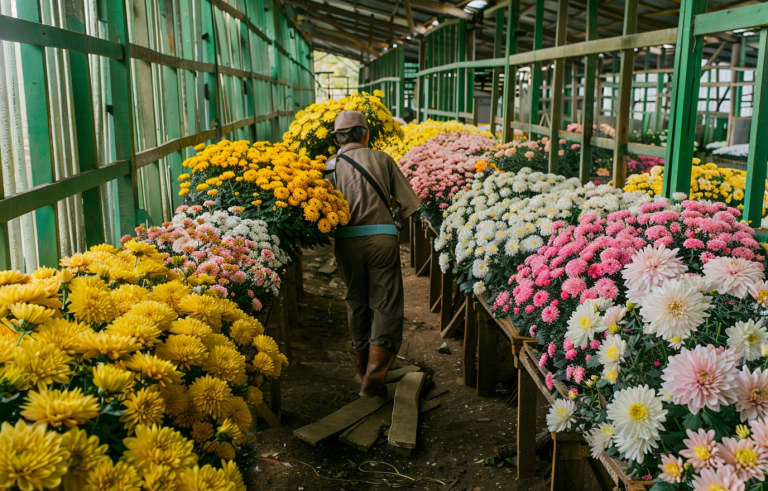
If you’re considering setting up a multinational company in Bali, Indonesia, for large-scale trade in flowers and houseplants, it’s essential to understand the KBLI code 46203.
This code encompasses the wholesale trading of agricultural products such as roses, jasmine, ornamental plants, and other flora.
It also includes seedlings for ornamental plants, flowers, and related products.
By familiarizing yourself with the requirements and regulations surrounding KBLI code 46203, you can establish a successful business in the distribution and export of flowers and houseplants from Bali, leveraging the island’s rich horticultural resources and strategic location for international trade.
Overview
The category KBLI Code 46203 covers the wholesale trade of flowers and ornamental plants.
This includes businesses that trade in agricultural products such as roses, jasmine, various other ornamental plants, and includes seeds for ornamental plants and flowers.
Legal Basis
The legal framework for the wholesale trade of flowers and ornamental plants is outlined in the Regulation of the Regulation of the Minister of Trade of the Republic of Indonesia Number 26 of 2021.
Type of License
According to BKPM Regulation Number 4 of 2021, Article 12, there is an exemption from the minimum investment requirements for Foreign Owned Enterprises (PMA).
Specifically, for the large-scale wholesale trade activities under the five-digit KBLI, the total investment must exceed IDR 10 billion (excluding land and buildings) per business type at each project location.
Coverage of Service
This section, while not detailed in the provided text, typically would outline the geographical and operational scope of the license, including where and how the business can operate within Indonesia.
Business Scale, Land Area, and Risk Level
The business is categorized under large-scale enterprises.
There is no regulation concerning the required land area for this type of business, and it is classified as having a low risk level.
Specific details about business licensing duration and validity are not mentioned.
Authorities Granting Licenses
The authority to grant licenses for this type of business is typically vested in the Minister or the Head of an Agency, particularly for PMAs (Foreign Owned Enterprises).
Requirements and Obligations for Business Licensing
For business licensing, there are specific requirements and obligations that must be met by enterprises operating under KBLI Code 46203.
Firstly, the business must have a physical location or control a premise that has a permanent and clear address.
This also extends to owning or controlling a warehouse that is registered and has a defined, permanent location.
Additionally, businesses are required to submit annual reports on their distribution activities to the Central Government.
Adhering to Health, Safety, and Environmental Management Standards (K3L) is another critical obligation.
Frequently Asked Questions
-
What types of plants does KBLI Code 46203 cover for trade?
This code includes the wholesale trade of a wide variety of flowers and ornamental plants, such as roses, jasmine, and other flora. It also covers the trade in seedlings for ornamental plants and flowers.
-
How can a foreign entity set up a flower and houseplant trading business in Bali?
A foreign-owned enterprise (PMA) must comply with specific investment regulations, such as investing more than IDR 10 billion (excluding land and buildings) per business type at each project location.
-
What strategic advantages does Bali offer for the flower and houseplant trade industry?
Bali's rich horticultural resources and strategic location make it an ideal hub for the distribution and export of flowers and houseplants, facilitating access to international markets.
-
What are the primary legal requirements for operating under KBLI Code 46203?
Operators must adhere to the Regulation of the Minister of Tourism and Creative Economy, ensuring compliance with the stipulated investment thresholds and business operations standards.
-
What future trends might impact the flower and houseplant trade industry in Bali?
Trends such as the increasing use of e-commerce for direct sales, sustainable and eco-friendly growing practices, and the rising international demand for exotic plants could significantly impact the industry.
Contact Us for the Multinational Flower Trade in Bali, Indonesia.







